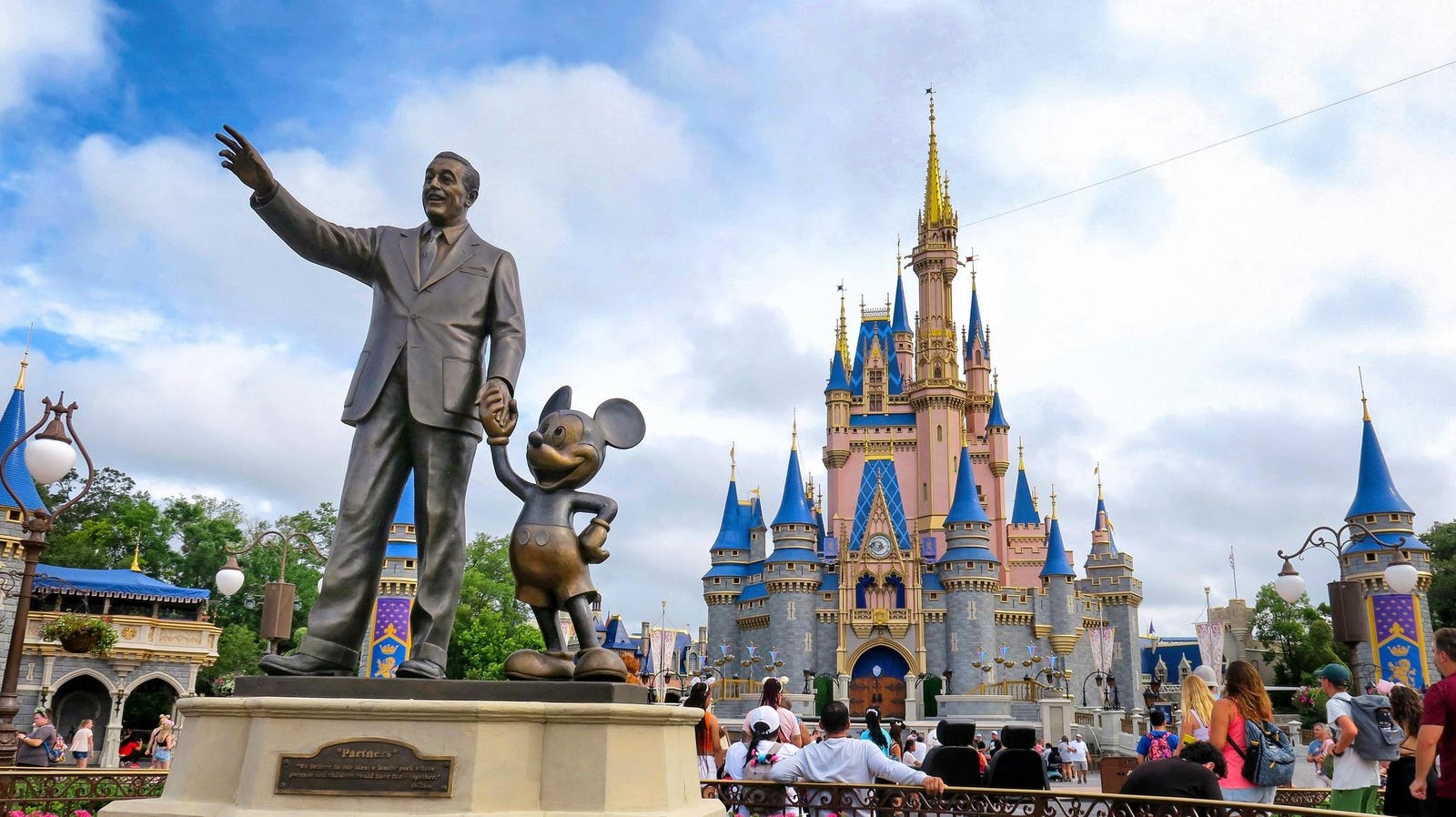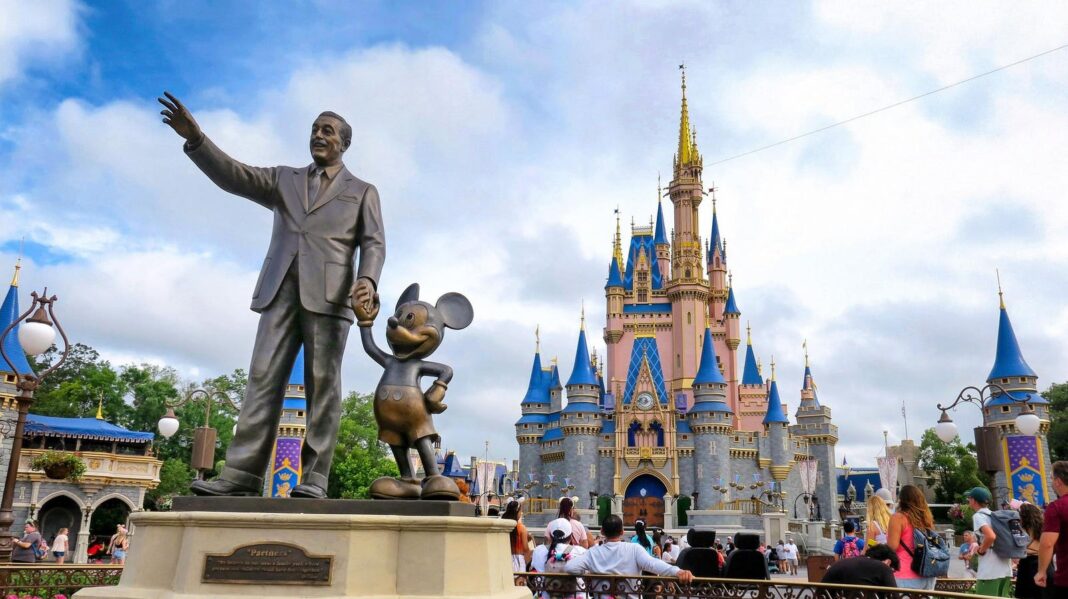The Happiest Place on Earth Turns Bitter: Disney Faces Backlash Over $17 Billion Theme Park Investments The magic of Disney has long been a staple of American pop culture, with its iconic theme parks, beloved characters, and timeless classics captivating audiences of all ages. However, beneath the gleaming façade of Mickey Mouse and Cinderella’s Castle lies a multi-billion dollar business, and the latest financial moves are sparking outrage among fans and investors alike. According to a recent report by Forbes, Disney has embarked on a staggering $17 billion theme park expansion plan, leaving many to wonder if the Mouse House has lost its way. In this article, we’ll delve into the controversy surrounding Disney’s ambitious investments and explore what this means for the future of the beloved brand.
Reasons Behind the Stock Price Crash

The Magic Kingdom’s Decline: A Weakened Stock Price
Disney’s stock price has been in a steady decline over the past few years, with the company’s market value plummeting from its March 2021 peak of $240 billion to its current value of around $170 billion. This decline can be attributed to a number of factors, including the company’s declining profitability and the increasing competition it faces from other entertainment companies.
Universal’s Expansion: A Threat to Disney’s Dominance
Universal Studios, Disney’s arch-rival in the theme park industry, has been expanding its operations in Orlando, Florida, with plans to open a new theme park called Epic Universe. This expansion is seen as a major threat to Disney’s dominance in the theme park industry, as it will give Universal a foothold in the lucrative Orlando market and allow it to compete directly with Disney’s flagship theme park, Magic Kingdom.
The Uncertainty of Disney’s Future: A Factor in the Stock Price Crash
The uncertainty surrounding Disney’s future is also a major factor in the stock price crash. The company has been facing a number of challenges, including increased competition from other entertainment companies, changes in consumer behavior, and the impact of the COVID-19 pandemic on its business. This uncertainty has led to a decline in investor confidence, causing the stock price to fall.
Implications and Analysis
The Impact on Disney’s Business Model: A Shift in Focus
Disney’s business model is built around its theme parks, with the company generating the majority of its revenue from ticket sales and merchandise. However, the decline in the stock price has led to a shift in focus, with the company looking to other areas of its business to drive growth. This includes the company’s streaming service, Disney+, which has been a major driver of growth in recent years.
The Competition in the Theme Park Industry: A New Era
The theme park industry is undergoing a significant transformation, with new players entering the market and existing players looking to expand their operations. This competition is driving innovation and investment in the industry, with companies looking to differentiate themselves and offer unique experiences to customers.
The Future of Disney’s Stock Price: A Chance for Rebound
Despite the decline in the stock price, there are signs that Disney’s stock price could rebound in the future. The company has a strong brand and a loyal customer base, and it has been investing in new areas of its business, such as streaming and digital media. If the company can execute on its strategy and deliver strong results, its stock price could recover and potentially even surpass its previous highs.
Practical Aspects: What’s Next for Disney?
The Path Forward: A Rebuilding Process
Disney’s decline in the stock price is a wake-up call for the company, and it will need to take a hard look at its business and make significant changes to get back on track. This will likely involve a rebuilding process, with the company investing in new areas of its business and looking to differentiate itself from its competitors.
The Need for Innovation: A New Era of Theme Park Experience
The theme park industry is evolving, and Disney will need to innovate if it wants to stay ahead of the competition. This could involve investing in new technology, such as virtual and augmented reality, and creating new and unique experiences for customers.
The Future of Disney’s Theme Parks: A Brighter Outlook
Despite the challenges facing Disney’s theme parks, there are signs that the future could be brighter. The company has a strong brand and a loyal customer base, and it has been investing in new areas of its business. If it can execute on its strategy and deliver strong results, its theme parks could continue to thrive and be a major driver of growth for the company.
Conclusion
The Dark Side of Disney’s Billion-Dollar Bet
As Forbes reports, Disney’s recent $17 billion theme park investments have sparked a furious backlash from investors, analysts, and consumers alike. The key points of contention revolve around the company’s questionable allocation of funds, soaring debt, and the potential cannibalization of existing theme park attendance. Critics argue that Disney’s lavish spending on new parks and attractions is a reckless gamble that could ultimately destabilize the company’s financial health. Furthermore, the article highlights the elephant in the room: the growing trend of theme park fatigue, where consumers are increasingly seeking more immersive and experiential entertainment options.
The implications of this story are far-reaching, with significant consequences for Disney’s bottom line and the broader theme park industry. If Disney’s investments fail to yield the expected returns, the company’s debt-laden balance sheet could become a major liability. Moreover, the trend of theme park fatigue poses a fundamental challenge to the business model of traditional theme parks, forcing industry players to innovate and adapt to changing consumer preferences. As we move forward, it will be fascinating to watch how Disney navigates these challenges and whether its investments will ultimately pay off.
As the world’s largest media conglomerate takes a $17 billion gamble on the future of theme parks, one thing is certain: the stakes have never been higher. Will Disney’s bet on the future of entertainment pay off, or will it succumb to the perils of over-investment and changing consumer habits? Only time will tell, but one thing is clear: the future of theme parks has never been more uncertain, and the consequences of failure will be seismic.
